Since 2016, young people in Fredrikstad have come together to learn how they can influence their everyday lives and take part in democratic processes. Ellen Reiss, head of the Demos project, believes that long-term, targeted work will build a democratic culture among children and young people.
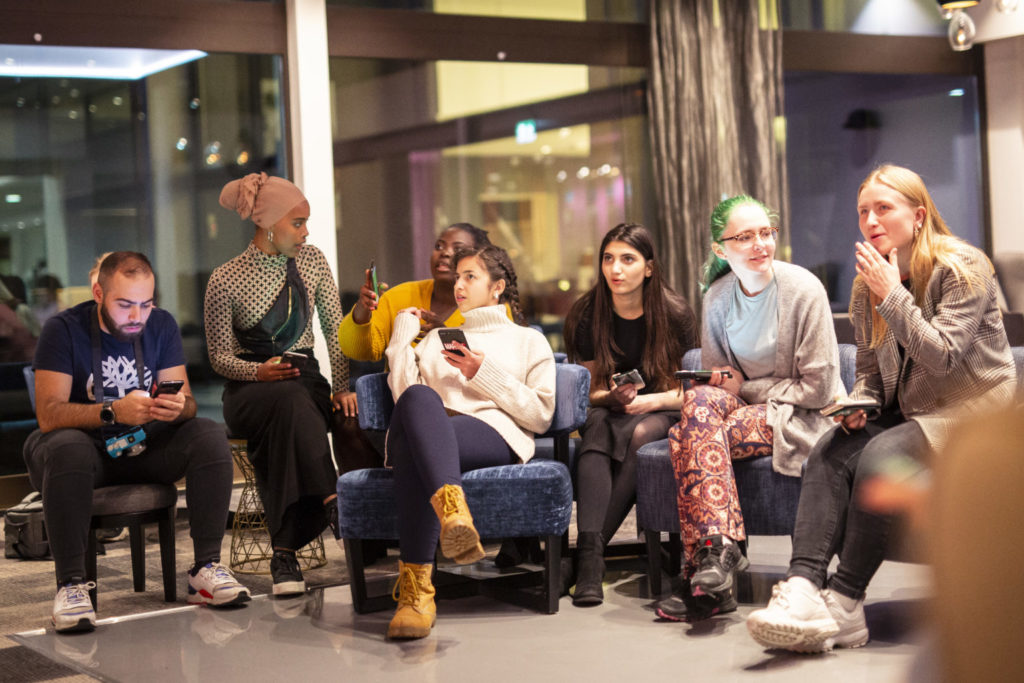
By Veslemøy Maria Svartdal
Ever since its creation in 2008, the European Wergeland Centre (EWC) has promoted the idea of education as a fundamental part of the fight to preserve and defend democracy in Europe.
Between 2020-2021, the world experienced the largest decline in democracy ever reported. Two-thirds of the world’s population are currently living in either authoritarian regimes or declining democracies.
Such statistics show how important it is to start training children in democratic citizenship from an early age. In Fredrikstad, systematic efforts have been made to strengthen children and young people’s faith in their own ability to become active members of their local democracy.
The Demos programme, which was established in 2016, gives young participants the opportunity to take part in workshops, summer camps and various events organised by the municipality throughout the year. The aim is to increase children and young people’s understanding of democracy and empower them to take an active part in democratic processes. Over the past three years, Demos has been able to scale up their programme and host a number of activities with support from Trygg by Norge and the Gjensidige Foundation.
The head of Demos, Ellen Reiss, explains that the idea behind the project was to prevent radicalisation and marginalisation among young people, and thus nip negative developments in the bud.
“The goals were to highten the quality of child and youth democracy, create more channels for democratic engagement, counter marginalisation, strengthen freedom of expression and human rights, have the courage to address controversial issues, and ensure that all groups in society can express their concerns and be taken seriously by those in power,” she says.
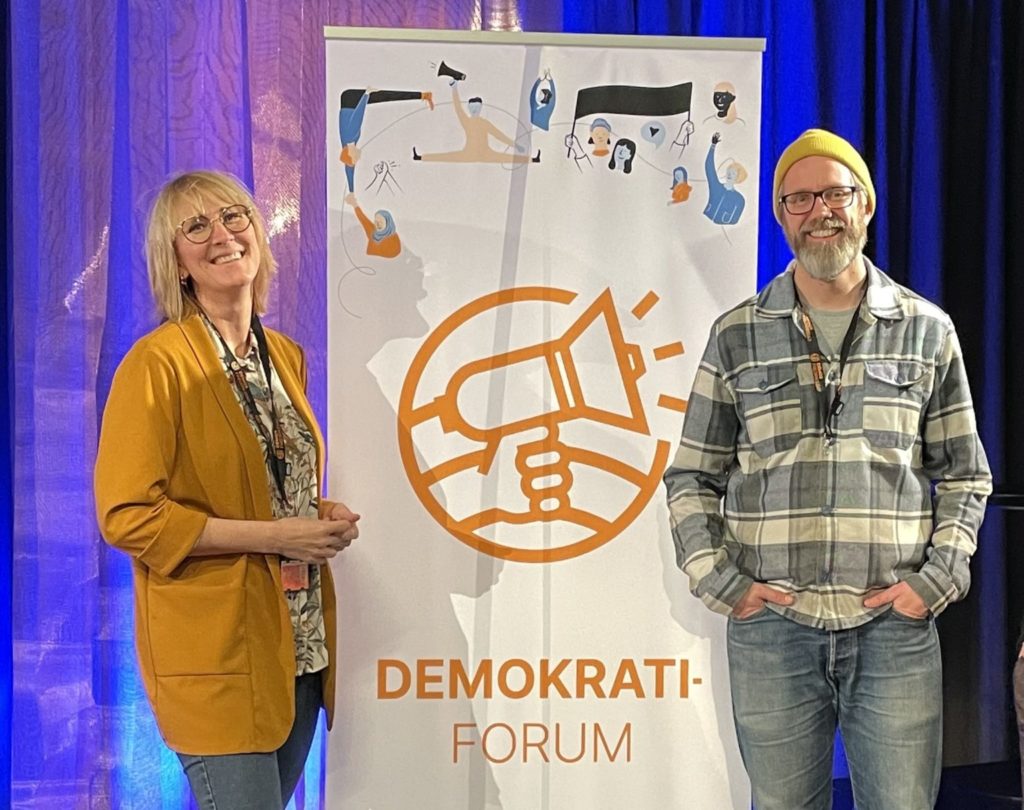
Fredrikstad has focused on a step-by-step approach, working closely with young people in the municipality, in order to enable them to actively participate in democratic processes, defend human rights and resolve conflicts through dialogue rather than violence. Their aim has been to build a democratic culture in the municipality.
To achieve this, Demos collaborates with local schools, youth clubs, libraries and various non-governmental organisations such as Dialogforum Østfold and Litteraturhuset Fredrikstad.
Partnering with the European Wergeland Centre
The European Wergeland Centre is also an important partner. For several years, Demos youths have participated in the Democracy Workshop at Utøya – a three-day programme offered by EWC in cooperation with Utøya and the 22 July Centre.
“We’ve worked closely with Fredrikstad for many years. It has been natural for us to collaborate with a municipality that has chosen to work so comprehensively on democratic citizenship,’ says Ingrid Aspelund, head of EWC’s youth section.
She believes that children should be allowed to participate in and influence democratic processes: “Democracy doesn’t just happen, it has to be learnt, through both knowledge and experience.”
Through the collaboration, EWC has provided tips and advice on how to use the Council of Europe’s competence framework for democratic culture in the development of Demos. The competency framework is known as “the Reference Framework of Competences for Democratic Culture”, or RFCDC for short, and is used in many of EWC’s projects. It emphasises the interaction between values, attitudes, skills and knowledge in democracy learning.
“It’s inspiring for us to see how those who have worked with Demos have dared to think big and holistically about democracy learning, and that they have chosen to use this important international framework locally in Fredrikstad municipality,” says Aspelund.
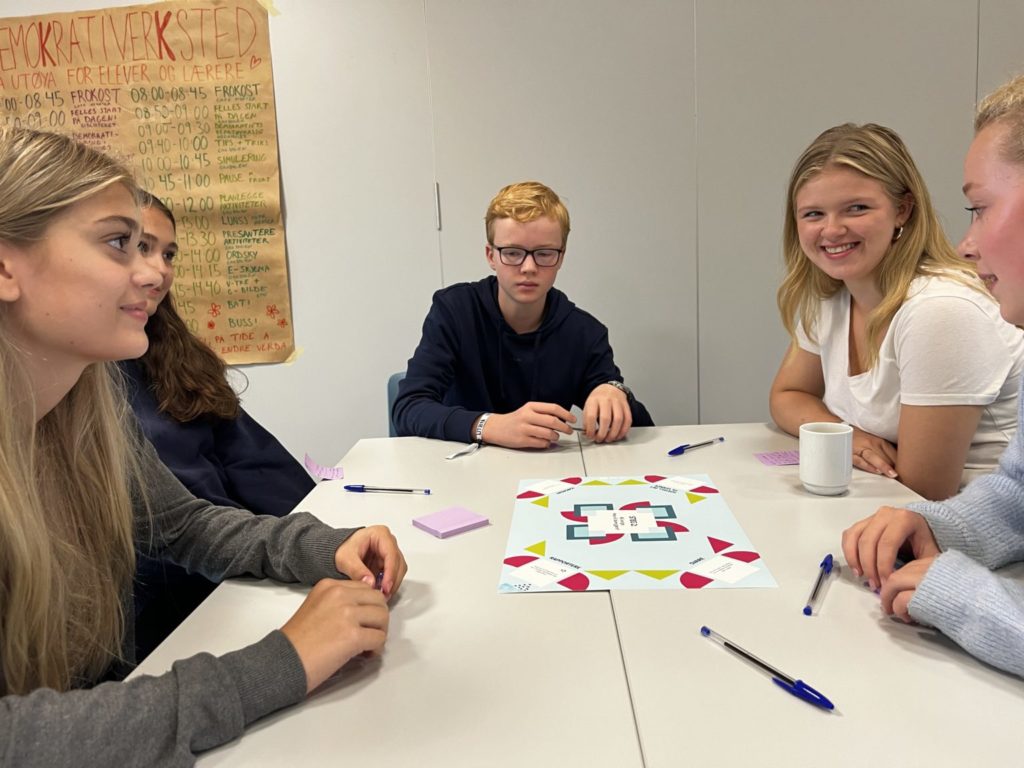
The Council of Europe’s framework provides teachers and educators in formal and non-formal education with knowledge on how to teach about democracy and what is needed to take an active part in the further development of democracy, the protection of human rights and non-violent solutions to conflicts.
“‘The Reference Framework of Competences for Democratic Culture from the Council of Europe” became a central part of the project at an early stage, and has served as a good basis for the project,” says Reiss. “Both the large overall project and the various sub-projects and activities have had the competences as a key.”
The European Wergeland Centre has also provided its own experts at Demos’ democracy conferences and summer camps. One of them is EWC advisor Mahira Karim.
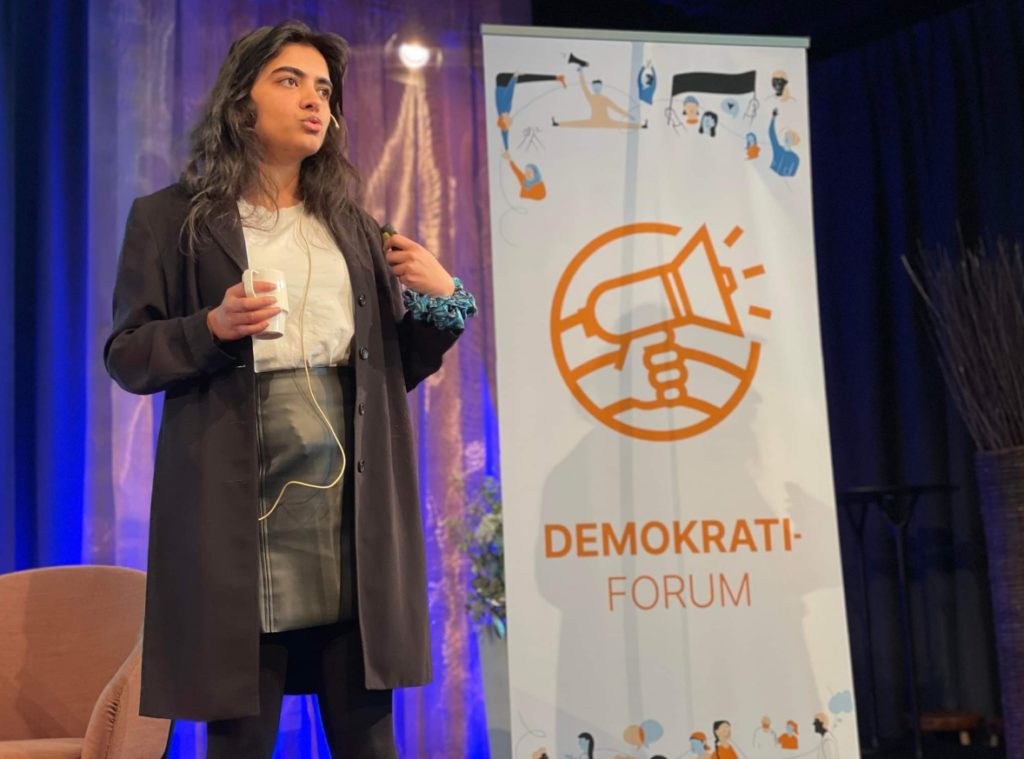
“I think the young people of Fredrikstad are eager, enthustiastic and have a great commitment to their city,” says Karim, “want to help children and young people grow up in a safe city, and they are particularly keen to prevent substance abuse at school. They are also keen to prevent hatred and violent extremism, as well as supporting initiatives that keep children and young people in the city safe.”
“On my visits to Fredrikstad, I find that the young people are thirsty for new knowledge and concerned with their own opinions and the opinions of others. They want to have a say the everyday lives of children and young people in their city,” she continues.
“Funny, dizzy and wise”
According to Reiss, it is absolutely essential that children and young people receive training in democratic citizenship:
“We’re seeing increased activity and influence from the far right. We’re seeing the democracy index falling, threats from extremist groups, conspiracy thinking, etc. At the same time, we have always said that building political confidence and democratic culture is an important goal in itself, both to maintain a safe and inclusive democracy – where all groups are represented and democratic participation is high – and for young people as individuals.”
Both Reiss and Karim agree that the consequences of failing to educate children and young people in democratic citizenship can be severe. If young people are not allowed to develop their faith in democracy at an early age, they are more likely to avoid participating in democratic processes later on, preferring to leave the decision-making to the extremes of society.
“We then run the risk of young people not believing that they have what it takes to participate in democracy. Democratic values and processes seem incomprehensible, distant or irrelevant, and they don’t participate in safeguarding and further developing democracy,” says Karim.
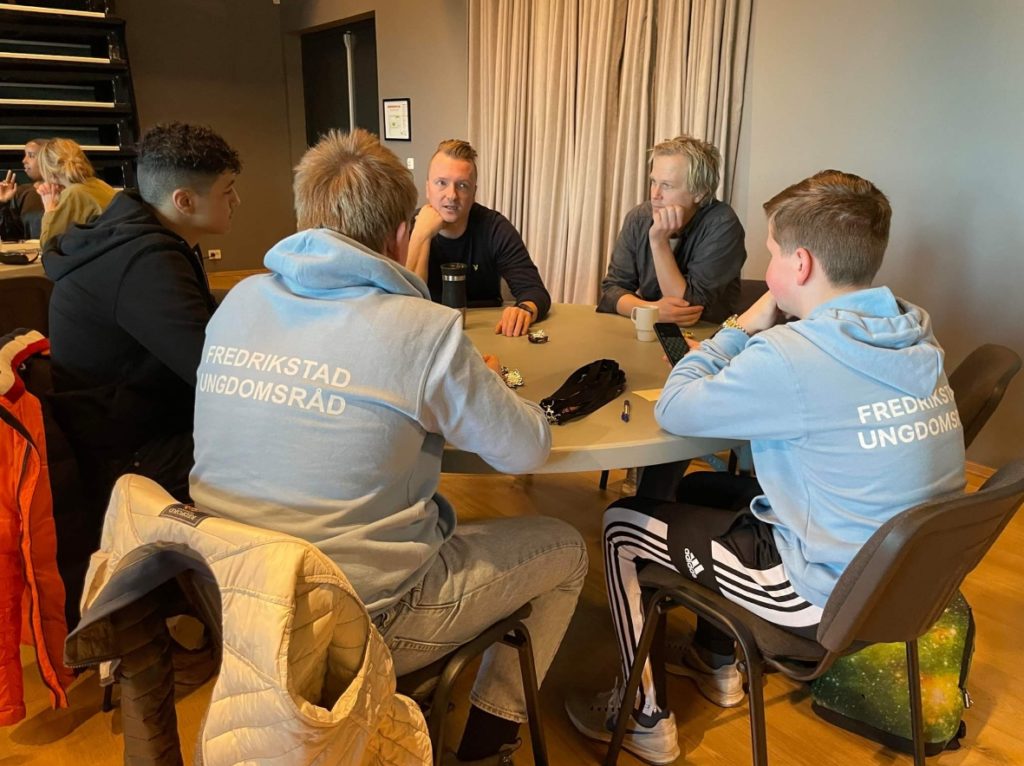
“In Norway, we are very aware of how important trust is for a society, and the opposite of that is fear and powerlessness, which in turn leads to conspiracy thinking, group hostility and increased aggression,” explains Reiss, “An increase in disinformation and propaganda can disrupt and undermine democracy if we don’t have a critically thinking population that trusts the institutions.”
According to Reiss, young people have through the Demos project gained a stronger belief in themselves, and that it’s not just adults who have power to make decisions:
“They don’t believe they can change the world overnight, but what they have in common is a commitment that is expressed in many different ways. There are young people who get involved in volunteering, youth politics, write op-eds, organise activity days for children and dare to challenge teachers, fellow pupils and politicians when they disagree with something.”
Through her work with youth, Reiss has found that many young people feel they are not being listened to, and that adults do not take them seriously. This can easily lead to discouragement and a diminished belief that they can have an impact on their own lives and that their voice matters.
“We’ve also worked a lot with the youth council and we have taken seriously the youth’s feeling that they are ‘formally’ listened to, but not really taken seriously,” says Reiss.
At the same time, there are many reasons why Fredrikstad’s young people are taking the active step and getting involved in Demos:
“Some have had a great need for a safe space to talk about racism and homophobia, others want to practise their debating and presentation skills, and some join mostly because it’s a nice social arena. One thing most people have in common – regardless of age and background – is that they have something on their minds, something they want to express, and they’re looking for an arena where they can do so and be taken seriously. And of course we serve pizza,” smiles Reiss.
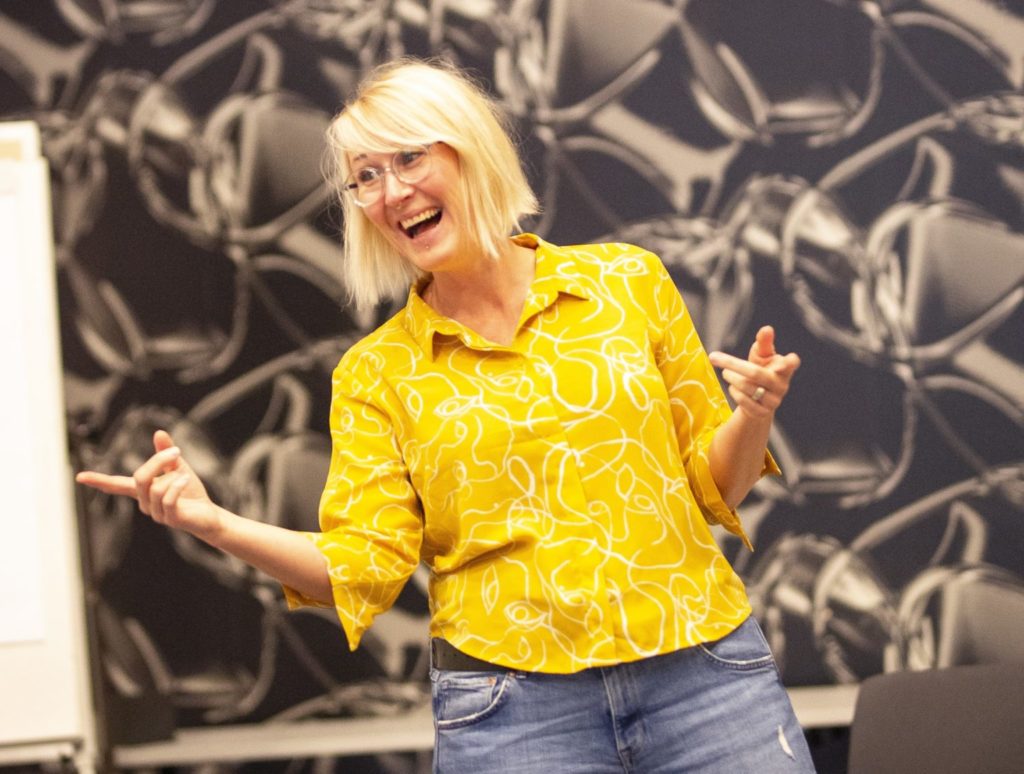
The Demos project was originally scheduled to end in 2024, but with support from the Gjensidige Foundation and Trygg by Norge, Reiss plans to continue the project with workshops, trips to Utøya, conferences and the annual democracy forum. At the same time, she plans to work even more closely with volunteers and the local press.
“It’s extremely rewarding to see young people experience a sense of achievement and engagement,’ says Reiss, “Especially when you have the opportunity to follow a group over time, you see quite big changes. At the same time, they are incredibly funny, dizzy and wise at the same time, which is a combination of qualities that I personally value very highly.”
“It’s always a pleasure to work with Ellen Reiss and Erik Kruse,” says Mahira Karim when asked to describe the collaboration between Demos and EWC. “They have close contact with children and young people in Fredrikstad and have a real passion for the project, which shines through in all the hours they spend on in, even in their spare time.” “Ellen and Erik have great faith in the project, and I think this enthusiasm and commitment will rub off on the young people. The aim of the project is to increase young people’s faith in democracy, and I believe they will succeed,” she concludes.